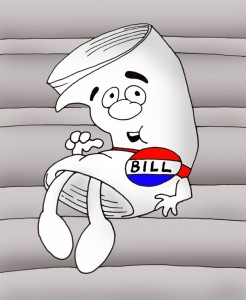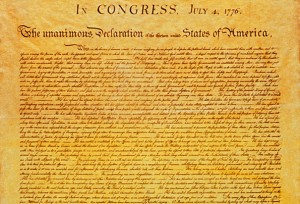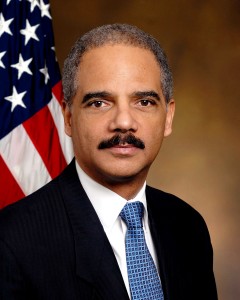I have been thinking, lately, of crime and punishment. Maybe it’s because I’ve been watching Blue Bloods on Netflix, maybe it’s just because the media have been soaked in an unending stream of stories about police officers, criminals, and the innocents trapped between them. Maybe it doesn’t matter.
I think we’ve been going at this whole crime and punishment thing all wrong. We act like people are something we can standardize, like traffic lights. The thing is, laws aren’t there to keep us all the same, they exist to set boundaries so we can be different in ways that don’t harm others. Societies, even small ones like families, cannot exist without rules of behavior, and without societies, we’re all just monkeys waiting for the next hungry leopard.
So I’ve been thinking. The first thing that occurred to me is that we keep looking at all felony crimes as if they were the same thing. The truth is, a lot of felonies should be misdemeanors—some shouldn’t be crimes at all—and punishing them all with hard time (and a lifelong social albatross) serves no one. I think our justice system should be scaled to reflect how a different crime directly affects society and the people that make it up.
Moral Crimes
What I’m calling moral crimes, is any crime that offends someone else’s idea of what’s right, but has no other direct effect on other individuals and society as a whole. Recreational drug use, gambling, sexual activities involving only consenting adults, these are all things that, when they are illegal, are not illegal because of any actual harm they do, but as an effort to enforce some arbitrary standard of virtuous behavior.
In my mind, none of these should be crimes at all. The guy who undertips (or downright refuses to tip) a waiter is doing far more harm than the one who cools down after work with a joint, but only one of them is going down to Huntsville if he tries to limit his trips to the Fifth Ward to just one a month.
That’s basically my thoughts on moral crime. If you’re reason that something should be illegal is, “I don’t do it, so you shouldn’t either.” It shouldn’t be a crime. You should just learn to get past the differences expressed by others. That our jails are full of people whose only crime is needing an easy means to avoid the harshness of their day is an embarrassment to our nation.
Procedural Crime
A procedural crime is one where the law sets a minimum standard in order to protect the rest of us from your negligence. Most traffic, consumer protection, and building and safety codes are procedural laws. Essentially, if you break a procedural law, you may not have hurt anyone, yet, but you’re going to.
Often, a procedural crime informs the understanding of a greater crime. A family dies because one man was driving while intoxicated. Twenty men and women are hospitalized because someone cheaped out on building supplies. Negligence at a food processing plant results in hundreds of casualties, some fatal, from a preventable contaminant. In my mind, these are all violent crimes (more on those, later), but they are informed by the existence of a procedural crime.
Procedural crimes should carry fines if, and only if, there is no evidence of other crime resulting from the violation. Of course these fines should vary with (a) the potential severity of the violation, (b) the financial situation of the accused, and (c) how many times the accused has been found guilty of committing similar offenses.
In cases where such crimes are the result of company culture, the fines should go right up the hierarchy until the offending company can show that the supervisor had no reasonable means of expecting the violation. Companies that have a stated safety or quality policy would need to show that they didn’t set sales or production standards that made adhering to that policy impossible.
The lion’s share of money from procedural fines should go into a fund to compensate any potential victims. Failure to pay those fines, elevates the crime from a mere procedural, to a
Property Crime
Any time you deny someone the use or enjoyment of something that is theirs by right, you commit a property crime. Theft and vandalism are obviously property crimes, but so are fraud, profiteering, and predatory lending practices. Non-payment of taxes and fines are also property crimes (against the government).
This is where jail time should begin to rear its ugly head. The primary aim here should be restitution. It does the victim no good for the accused to go to jail. The victim has still suffered a loss (and don’t say “blahblah insurance blah” you know as well as I do that getting full value out of an insurance policy is like getting milk from a cat—it’s possible, but one of you probably won’t survive the experience).
Anyway, the punishments here should run on a sliding scale from simply paying the victim back (plus a punitive fine) through probationary labor or wage garnishing, up to incarceration on a work farm or prison factory. The length of any labor or incarceration would be wholly defined by the value of the lost property and additional fines for recidivism.
Violent Crime
If you knowingly bring harm to another person, you have committed a violent crime. As I said, above, committing a procedural crime informs the charge, here. If you were speeding through a school zone, and hit a child, in my mind, you are guilty of battery against that child (assuming he lives) just as much as if you had taken the tire iron out of your trunk and used it on him.
I should point out that I don’t consider simple assault (a threat of violence combined with the means to carry out that violence) to be a violent crime–it’s procedural. Assault raises theft to robbery; by removing the option of consent, assault turns sex into rape. On it’s own, however, assault should not be treated as a matter on par with violent crimes. There’s a wide gulf between, “I’m gonna kick your ass!” and someone getting their meals through a straw while they wait for their jaw to heal.
Violent felons should be removed from society, because they pose a clear and present danger to that society. First time offenders should be offered therapy and training to (hopefully) give them the tools to avoid committing their crime again. Repeat offenders should receive longer stays and more severe punishments depending on the severity of their offense and how many times they’ve committed it.
Violence should be looked at as partially a property crime. Hospital bills, lost wages, physical and psychological therapy are all expenses the victim would not have to shoulder if not for the actions of the convicted. So part of a violent felon’s sentence should be working for restitution for his victims. As a society, we should re-acquaint ourselves with the idea of weregild, because human lives have value, and that value should be paid by those who willfully destroy them.
Capital Crime
Some people commit crimes so heinous they can never be allowed to interact with society. Those people need to be removed. Lacking a secure habitat to exile them, I believe the only real solution is to put them down.
We must, however, ensure that we have the right person. Rules of evidence and debate in capital cases must be orders of magnitude greater than those in regular trials. Prosecutors must be prevented from using theatrics of any kind or any sort of visceral appeal during the trial phase. Juries must be allowed to determine guilt or innocence based entirely on the facts. It’s hard to say, “Not guilty” when you have ten crime-scene photos of bloody victims in front of you, and an officer of the court telling you, “This guy did it, are you going to let him get away?”
But that’s what we expect juries to do in capital trials. We shouldn’t, and we shouldn’t allow prosecutors to put juries in that position.
Obviously, there are holes in my plan, and much would need to be discussed, but I think it’s a good starting point.







